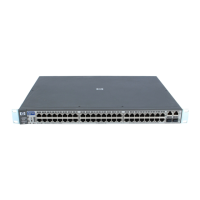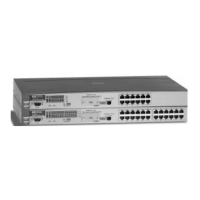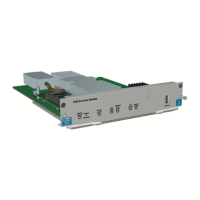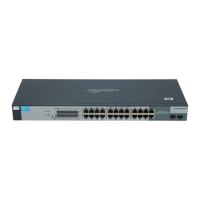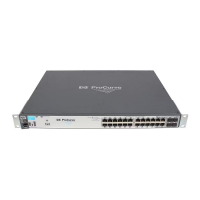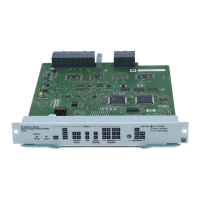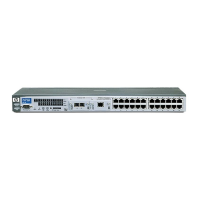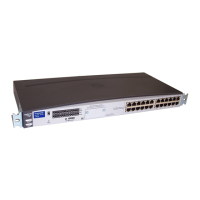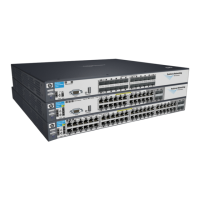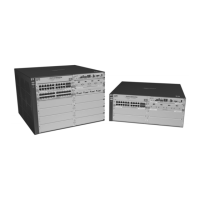4 – Index
passwords, deleting … 1-10
physical specifications, switch … A-1
Ping test … 4-10
pin-outs
twisted-pair cables … C-6
PoE LEDs … 1-7
PoE+…1-3
port configuration
checking when troubleshooting … 4-3
Port LED View
indicator LEDs … 1-8
select button … 1-8
selecting the display … 1-8
port LEDs
description … 1-7, 2-20, 2-23
Link … 1-7, 1-11
normal operation … 2-7
ports
10/100Base-TX, location on switch … 1-4–1-5
connecting to … 2-27
console … 2-24
HP Auto-MDIX feature … C-6
network connections … 2-27
power connector … 1-13
power cords … 2-2
Power LED … 1-6, 2-20, 2-23
behavior during self test … 2-7
behaviors … 1-6, 2-20, 2-23
location on switch … 1-4
power source
connecting the switch to … 2-18
precautions
mounting the switch … 2-3
power requirements … 2-3
preparing the installation site … 2-5
pre-standard PoE devices … 1-3
Proactive Network tools
diagnostics with … 4-8
R
rack
mounting precautions … 2-3
mounting the switch in … 2-11
rack mounting … 2-3, 2-11
rail kit … 2-1, 2-3
recycle statements … E-1
regulatory statements … D-8
Reset button
description … 1-10
location on switch … 1-4, 1-10
restoring factory default configuration … 4-11
resetting the switch
factory default reset … 4-11
location of Reset button … 1-10
troubleshooting procedure … 4-9
RPS/EPS connectivity … 2-21, 2-24
RPS/EPS LEDs … 2-19, 2-22
S
safety and regulatory statements … D-1
safety specifications … A-2
selecting the Port LED View display … 1-8
self test
Fault LED behavior … 2-7
LED behavior during … 2-7
Power LED behavior … 2-7
Self Test LED … 1-7
behavior during factory default reset … 4-11
serial cable
for direct console connection … 2-25
SFP+ … 1-2
slots for mini-GBICs
location on switch … 1-4
Spd LEDs … 1-7
specifications
cabling … C-1
distance … C-3
electrical … A-1
environmental … A-1, B-1
physical … A-1
safety … A-2
straight-through cable
pin-out … C-7, C-9
subnet mask
configuring … 3-3
summary
of switch installation … 2-4
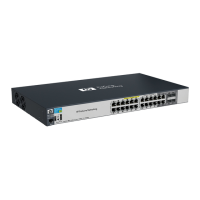
